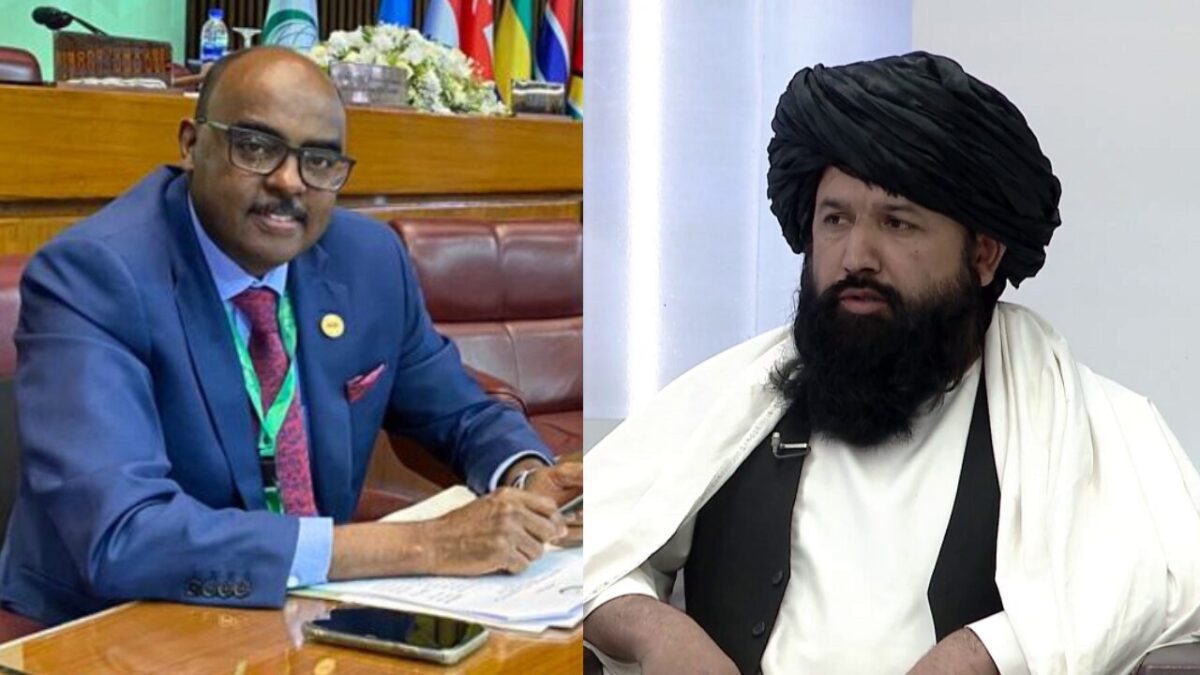KABUL, Afghanistan — The Taliban’s minister of higher education, Nada Mohammad Nadim, told the Organization of Islamic Cooperation’s (OIC) special envoy for Afghanistan that they had revised the country’s academic curriculum, claiming it “did not meet current needs.”
According to a statement from the Taliban-controlled Ministry of Higher Education, Nadim made the remarks during a meeting with Tariq Ali Bakhit, the OIC’s envoy to Afghanistan.
The statement also noted that the OIC had pledged to cooperate with the ministry, though the organization has not yet commented on the meeting.
Taliban did not release any photos of the meeting.
In past visits, Bakhit and other OIC representatives have repeatedly urged Taliban officials to restore girls’ access to education, which remains banned beyond the sixth grade since the group took power in August 2021.
The issue has also been a point of contention among Islamic scholars. At an OIC summit in Islamabad, the head of the International Union of Muslim Scholars stated that the Taliban’s ban on girls’ education was based on their own interpretation of Islam, rather than religious doctrine.
He also appeared to address the Taliban’s supreme leader directly, saying: “Declaring something permissible as forbidden is one of the greatest sins.”
Since regaining power in August 2021, Taliban have made significant changes to Afghanistan’s education system, including removing certain subjects and imposing severe restrictions on girls’ education.
Subjects removed from the curriculum
Civic education and patriotism: Taliban have eliminated subjects related to Afghan culture and national identity from the curriculum. These courses previously taught students about Afghanistan’s history, traditions, and national values.
Life skills education: Taliban have also removed life skills courses, which were designed to help students develop social skills, personal hygiene awareness, and decision-making abilities.
Gender-based education restrictions
Ban on girls’ education: Girls beyond the sixth grade are banned from attending school, leaving millions without access to formal education. Universities have also been closed to women since December 2022.
Impact on boys’ education: While boys are still allowed to attend school, the quality of education has declined due to curriculum changes and a shortage of qualified teachers. The Taliban have also increased religious studies in schools, replacing some subjects with Islamic teachings.
These curriculum changes and restrictions have limited educational opportunities for Afghanistan’s youth, raising serious concerns about the country’s future workforce, economic development, and human rights.





